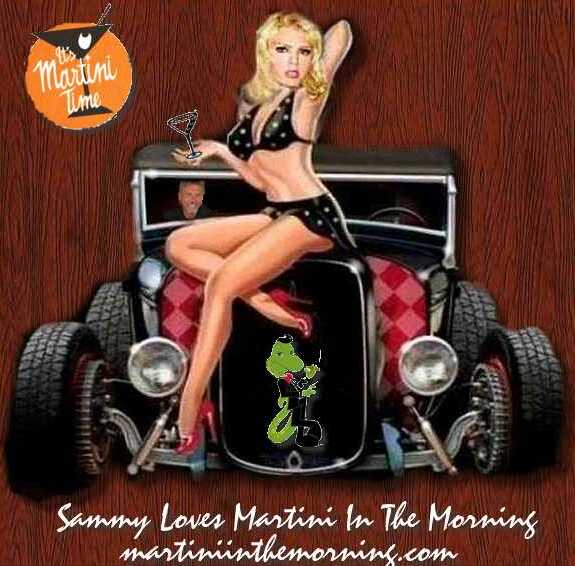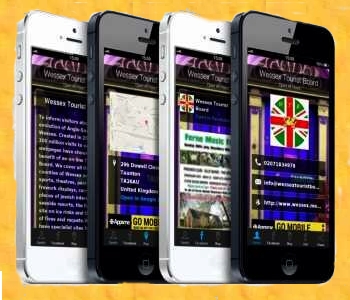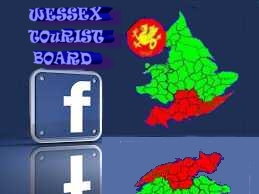
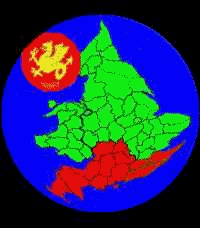 ROOTS ROOTS |
||
|
|
||
| Welcome to Wessex & Chardnet. Press Control+B to Bookmark this site for later reference. | ||
Attractions, Events, Tennis Clubs, Radio Stations, Sports, Theatre and much more |
||
 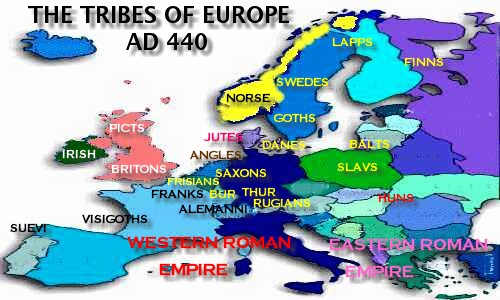 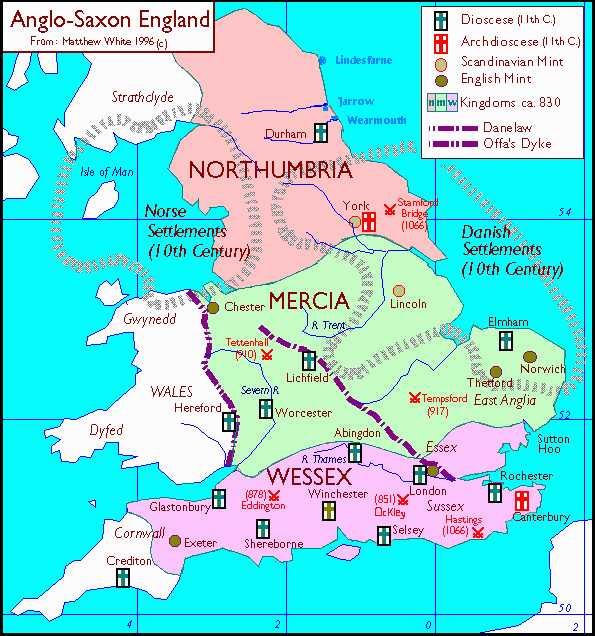 The Wessaxens came here for a visit 1519 years ago and liked it so much they have stayed. WHERE & WHAT IS WESSEX? (from "Whitlock's Wessex " by Ralph Whitlock 1975) Wessex is the
cradle of England. Here most things English
came to birth and were nourished and protected
through a difficult infancey. But for one or
two of those incalculable accidents of
history, we would now be hearing the BBC
Newsreader every morning announce, 'Marnin'to
ee all. Here be the tidings vor....'
Consider the verb 'to be'. In standard English the present tense now runs, I am, Thou art, He is, We are, They are. A mongrel hotchpotch culled from goodness how many verbs. Compare it with the Wessex: I be, Thou bist, He be, We be, You be, They be. An old English verb, perfectly conjugated. Nothing irregular about it, except that a Wessex man will use thee instead of thou, while, of course, a Devon man would say us instead of me. And until recently Dorset and Wiltshire folk would use her for everything except a tomcat, which was always he. Even so, Wessex speech is much nearer to the original Anglo-Saxon than is Oxford English, which is a kind of debased dialect - as every Wessex man will confirm. Wessex speech, with its 'v's and 'z's and broad vowels, is still understood and used throughout Wessex. Indeed, a rough-and-ready definition of Wessex is the province where it is so used. It would include all of Wiltshire, Dorset, Somerset and Devon; most of Hampshire and parts of Berkshire and Gloucestershire. Cornwall should come in ,too, I think. Cornwall was incorporated into the historical Wessex at a later date and so preserved for longer its Celtic identity and much of its Celtic Speech. The Cornish are insular to the extent that a Cornishman standing on the hills by Callington was able to comment, as he gazed at some apparently similar hills on the eastern horizon, 'There! Now who'd live in a place like that?' When asked what was the matter with it he replied with infinite scorn, 'Why, that's Devon.' Another well-educated Cornishman who I met at Helston soon after the war commented, quite seriously, 'Well, I've finished my travels and now that I'm out of the RAF I don't ever want to go back to England again. Nevertheless, there is a similarity between present-day Cornish speech and that of central Wessex. To Thomas Hardy it was 'Outer Wessex' and so it shall be for us. Wessex folk have a Shibboleth. It is, Thee cassen zee as well as thee coo'st, ca'st? And if thee coo'st thee oosen! Anyone who can understand that, by ear alone, can qualify as a Wessex man. I think most Cornish could. The origin of Wessex is, of course, a matter of history. Wessex, the country of the West Saxons, was the largest, most enduring and most civilized of the Anglo-Saxon states. Our Royal family is descended directly from the West Saxon kings, the first of whom was the half-legendary Cerdic, who, according to the Anglo-Saxon Chronicles, landed with a war band somewhere on the south coast in the year 495. The Wessex royal family provided the first king of all England, Egbert. In 878, 53 years later, Wessex, alone of all the kingdoms of western Christendom, fought the rampaging Northmen to a standstill. Alfred, the hero of that epic, is the only English king ever to have been awarded the title 'the Great'. For several centuries the political and social life of England was centered on Winchester, the Wessex capital. Probably it was the feud between Edward the Confessor and his mother, the redoubtable Queen Emma, that led to London, where Edward founded Westminster Abbey, usurping the place of Winchester, where Emma lived. But for centuries afterwards Wessex still led in commerce and industry. The West Country was studded with flourishing little weaving-towns and wool markets long before that industry moved to the North. Bristol & Southampton were the foremost among dozens of thriving ports along the southern and south-western coasts. In recent years a trend towards regionalism, as a reaction to overmuch centralism, has revived the concept of Wessex. While some of the suggested new regions have had little logical basis in either history or geography Wessex, based on historical extent, would have an immense potential and would be at least homogeneous as Wales or Ulster. Published by the Moonraker Press. 26 St.Margaret's Street, Bradford on Avon, Wiltshire C 1975 Ralph Whitlock |
||
|
A Knight's Tale
I had to
let the drawbridge down recently to entertain Barry
Lawrence Goble of Boden Street, Chard. He brought a
copy of his coat of arms verified by the College of
arms.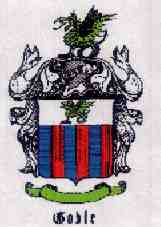 The name
of Goble, sometime Gobel is believed to have been a
comparitively recent variant on the ancient
Anglo-Saxon personal name of Godbold or Godbead.
Godbold is recorded in the "Doomsday Book" "as a
previous Anglo-Saxon tenant". It is
believed that the family, which included the Earl of
Arundel" (beheaded by Elisabeth I for being
Catholic) are renowned through history and include
Mamie Doud Eisenhower, wife of President Dwight
Eisenhower. The interesting part of all this
is that the crest includes the Wyvern which,
historically could only have been carried by the
Royal Family of Wessex. Note it is a green wyvern .
Heraldic records, however, seem to point more
towards Sussex and Burpham and Petworth. This ties
in with the connection with the Earl of Arundel.
Obviously the Godbold ancestor came from Saxony and
was connected with the Saxon conquest of South East
Briton. However we can not be sure that they were
here at the time of Cerdic. He got us thinking about
true Wessex names. So we did some research The name
of Goble, sometime Gobel is believed to have been a
comparitively recent variant on the ancient
Anglo-Saxon personal name of Godbold or Godbead.
Godbold is recorded in the "Doomsday Book" "as a
previous Anglo-Saxon tenant". It is
believed that the family, which included the Earl of
Arundel" (beheaded by Elisabeth I for being
Catholic) are renowned through history and include
Mamie Doud Eisenhower, wife of President Dwight
Eisenhower. The interesting part of all this
is that the crest includes the Wyvern which,
historically could only have been carried by the
Royal Family of Wessex. Note it is a green wyvern .
Heraldic records, however, seem to point more
towards Sussex and Burpham and Petworth. This ties
in with the connection with the Earl of Arundel.
Obviously the Godbold ancestor came from Saxony and
was connected with the Saxon conquest of South East
Briton. However we can not be sure that they were
here at the time of Cerdic. He got us thinking about
true Wessex names. So we did some research |
|||||||||||||||||||||||||||||||||||||||||||||||||||||||||||||||||||||||||||||||||||||||||||||||||||||||||||||||||||||||||||||||||||||||||||||||||||||||||||||||||||||||||||||||||||||||||||||||||||||||||||||||||||||||||||||||||||||||||||||||||||||||||||||||||||||||||||||||||||||||||||||||||||||||||||||||||||||||||||||||||||||||||||||||||||||||||||||||||||||||||||||||||||||||||||||||||||||||||||||||||||||||||||||||||||||||||||||||||||||||||||||||||||||||||||||||||||||||||||||||||||||||||||||||||||||||||||||||||||||||||||||||||||||||||||||||||||||||||||||||||||||||||||||||||||||||||||||||||||||||||||||||||||||||||||||||||||||||||||||||||||||||||||||||||||||||||||||||||||||||||||||||||||||||||||||||||||||||||||||||||||||||||||||||||||||||||||||||||||||||||||||||||||||||||||||||||||||||||||||||||||||||||||||||||||||||||||||||||||||||||||||||||||||||||||||||||||||||||||||||||||||||||||||||||||||||||||||||||||||||||||||||||||||||||||||||||||||||||||||||||||||||||||||||||||||||||||||||||||||||
In 1890, Henry Brougham Guppy published Homes of Family Names in Great Britain. This was a survey of English surnames arranged by county. This list was later updated by William Addison in Understanding English Surnames. Guppy drew mainly on the surnames of late Victorian yeoman farmers, regarding them as the group most likely to remain rooted in one spot. This assumption has been criticised, but no other serious survey has been carried out into regionally based surnames, so Guppy's and Addison's lists form the basis of the following list of surnames found solely within the eight Wessex shires. For a critical assessment of Guppy and Addison’s methodologies and limitations see the English Local Surnames web page. With the caveats listed above and on that website, if any of the following surnames appears in your family tree, there is a strong chance that you have.... |
|||||||||||||||||||||||||||||||||||||||||||||||||||||||||||||||||||||||||||||||||||||||||||||||||||||||||||||||||||||||||||||||||||||||||||||||||||||||||||||||||||||||||||||||||||||||||||||||||||||||||||||||||||||||||||||||||||||||||||||||||||||||||||||||||||||||||||||||||||||||||||||||||||||||||||||||||||||||||||||||||||||||||||||||||||||||||||||||||||||||||||||||||||||||||||||||||||||||||||||||||||||||||||||||||||||||||||||||||||||||||||||||||||||||||||||||||||||||||||||||||||||||||||||||||||||||||||||||||||||||||||||||||||||||||||||||||||||||||||||||||||||||||||||||||||||||||||||||||||||||||||||||||||||||||||||||||||||||||||||||||||||||||||||||||||||||||||||||||||||||||||||||||||||||||||||||||||||||||||||||||||||||||||||||||||||||||||||||||||||||||||||||||||||||||||||||||||||||||||||||||||||||||||||||||||||||||||||||||||||||||||||||||||||||||||||||||||||||||||||||||||||||||||||||||||||||||||||||||||||||||||||||||||||||||||||||||||||||||||||||||||||||||||||||||||||||||||||||||||||||
Wessex RootsIf you have one of the following names you could have Wessex Roots -we suggest you trace back your name |
|||||||||||||||||||||||||||||||||||||||||||||||||||||||||||||||||||||||||||||||||||||||||||||||||||||||||||||||||||||||||||||||||||||||||||||||||||||||||||||||||||||||||||||||||||||||||||||||||||||||||||||||||||||||||||||||||||||||||||||||||||||||||||||||||||||||||||||||||||||||||||||||||||||||||||||||||||||||||||||||||||||||||||||||||||||||||||||||||||||||||||||||||||||||||||||||||||||||||||||||||||||||||||||||||||||||||||||||||||||||||||||||||||||||||||||||||||||||||||||||||||||||||||||||||||||||||||||||||||||||||||||||||||||||||||||||||||||||||||||||||||||||||||||||||||||||||||||||||||||||||||||||||||||||||||||||||||||||||||||||||||||||||||||||||||||||||||||||||||||||||||||||||||||||||||||||||||||||||||||||||||||||||||||||||||||||||||||||||||||||||||||||||||||||||||||||||||||||||||||||||||||||||||||||||||||||||||||||||||||||||||||||||||||||||||||||||||||||||||||||||||||||||||||||||||||||||||||||||||||||||||||||||||||||||||||||||||||||||||||||||||||||||||||||||||||||||||||||||||||||
My name is Nick Xylas, and I
was chairman of Wessex Society from 1999 to
2003, when I moved to South Carolina, USA in
order to marry my American sweetheart. But I
have not forgotten my roots, and so I
decided to produce a website dedicated to
the region that I was born and raised in. However
I
have now donated my writings for the
www.wessex.me.uk website. This page is
one of the pages that I compiled.
|
| Get Your
Cerdic Merchandise and show your connection
with the Ancient Kingdom of Wessex |
 Cerdic postcards |
 |
 Cerdic's Crown |
 Cerdic's
Kids Jousting Shirt
|
 Cerdic's Armour White T-shirt |
 Cerdic Wall Clock Its Been ticking since 497 B.C. |
 Cerdics Babygrow |
 Make Your Dog King For A Day With his own T-Shirt |
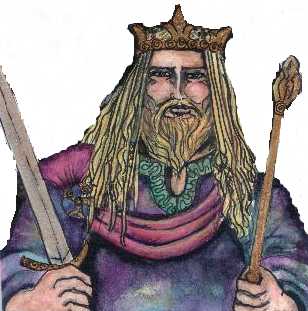 |
 Cerdic Teddy Bear |
 Cerdic's
Saxon
Lager Drinking Vessel
|
| Advertisements |
||||
|
||||
 |
| www.mercia.me.uk
|
www.wessextouristboard.org.uk |
| A
|
C
|
